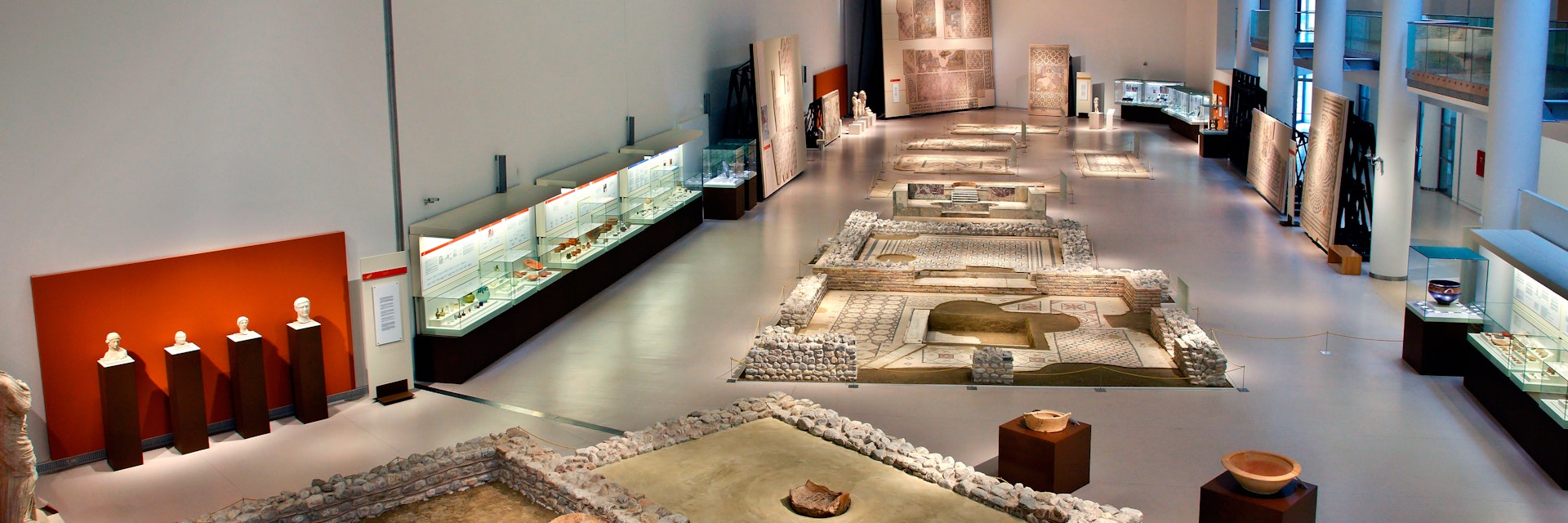This fabulous museum should be shouting its existence from its space-age rooftop. Its exhibits comprise regional objects from prehistoric to Roman times arranged across three themed halls: Private Life, Public Life and Cemeteries. Displays largely focus on two eras: there are excellent Mycenaean ceramics from a variety of grave sites in the region, and some fine sculptures and mosaics from Roman villas and other sites excavated around town. Most extraordinary, though, are four moving Hellenistic-era skulls complete with beautiful, delicate funerary wreaths.
Explanations are in Greek and English. The museum is 4km northeast of the centre.



